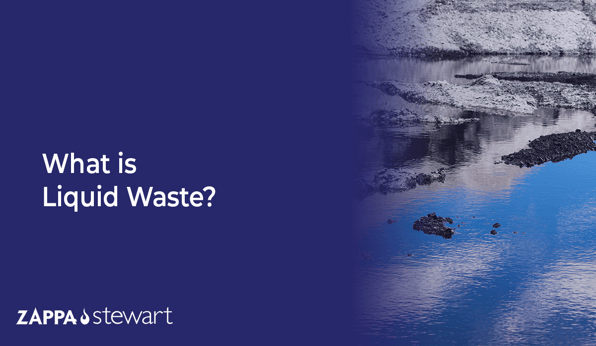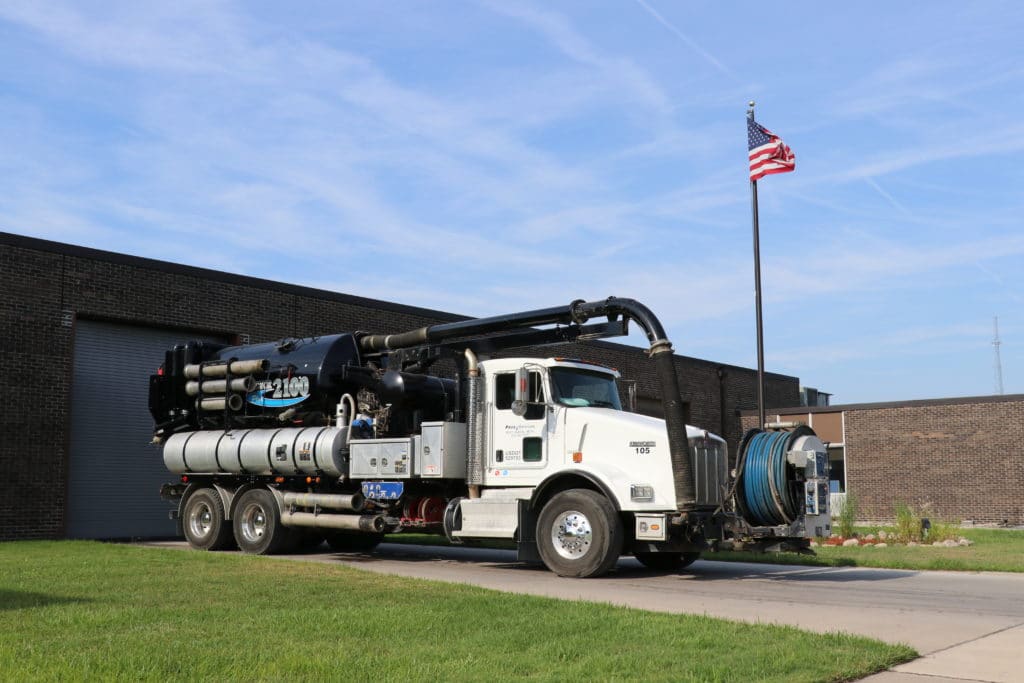Expert Liquid Waste Removal Melbourne: Quick and Inexpensive Services
Expert Liquid Waste Removal Melbourne: Quick and Inexpensive Services
Blog Article
Understanding the Comprehensive Refine of Fluid Garbage Disposal: Best Practices and Environmental Impact Considerations
The management of fluid garbage disposal is a multifaceted concern that calls for a complete understanding of various best practices and their connected environmental effects. From the kinds of fluid waste created to the techniques utilized for collection, treatment, and last disposal, each action plays a critical duty in guarding ecological communities and public health. As regulatory criteria develop and innovation advancements, the conversation around these procedures becomes increasingly pertinent. What effects do these adjustments hold for future sustainability initiatives, and exactly how can stakeholders make certain that they are adequately attended to?
Types of Fluid Waste
Comprehending the various sorts of liquid waste is crucial for efficient management and disposal practices. Fluid waste can be broadly categorized right into numerous types, each needing distinct handling and therapy methods.
Industrial fluid waste often has dangerous products, consisting of heavy metals, solvents, and chemicals, created throughout producing procedures. These wastes necessitate rigorous regulatory conformity to protect human health and wellness and the setting. Residential liquid waste largely refers to wastewater produced from families, including sewer and greywater, which, although much less poisonous, can still posture substantial threats if poorly managed.
Agricultural liquid waste, consisting of drainage from ranches, typically contains fertilizers and pesticides that can cause environmental degradation otherwise dealt with effectively. Clinical liquid waste, created from health care centers, includes infected fluids such as bodily liquids and chemicals, calling for specialized disposal approaches to avoid infection and environmental contamination.
Last but not least, oil and oil waste, commonly created by restaurants and vehicle markets, can cause extreme blockages in sewage system systems otherwise handled properly. Understanding these categories facilitates targeted approaches for therapy, compliance with laws, and reliable disposal approaches, eventually promoting environmental sustainability and public health and wellness safety.

Collection Techniques
Effective collection techniques are critical for the proper administration of liquid waste, making certain that it is gathered safely and efficiently prior to treatment or disposal. Different methods are employed relying on the kind of fluid waste produced, the quantity, and the certain characteristics of the waste.
One typical method is making use of committed collection tanks or sumps, which are designed to capture liquid waste at the source. These systems typically include pumps that facilitate the transfer of waste to bigger storage containers or treatment facilities. Furthermore, mobile collection systems furnished with vacuum modern technology are used in circumstances where waste is generated periodically or in hard-to-reach areas.
For commercial settings, closed-loop systems can properly lessen spills and leaks, enabling the healing and reuse of liquid waste. It is additionally important to train workers on appropriate collection procedures to alleviate threats associated with harmful compounds.
Additionally, executing routine maintenance routines for collection devices ensures ideal performance and safety. The integration of innovative surveillance systems can boost collection effectiveness by providing real-time data on waste levels and potential threats. Overall, effective collection techniques are fundamental to lasting liquid waste management techniques.
Therapy Processes
Therapy procedures play an essential duty in the administration of liquid waste, transforming potentially harmful products right into risk-free effluents or reusable resources - liquid waste disposal. These processes can be broadly classified right into physical, chemical, and organic techniques, each customized to deal with details impurities existing in the waste stream
Physical therapy approaches, such as sedimentation and purification, work by getting rid of put on hold solids and particulate matter. These strategies are often the very first step in the treatment chain, effectively minimizing the lots on subsequent processes. Chemical treatments include using reagents to neutralize damaging materials, precipitate heavy metals, or oxidize organic pollutants, therefore improving the safety of the effluent.
Biological treatment processes, try this consisting of activated sludge systems and anaerobic food digestion, profit from the all-natural abilities of microbes to degrade natural issue. These approaches are specifically effective for wastewater including eco-friendly toxins. visit here Advanced treatment modern technologies, such as membrane layer purification and advanced oxidation processes, are increasingly utilized to attain greater degrees of filtration.
Including a combination of these therapy approaches not just makes sure conformity with regulative standards yet additionally promotes ecological sustainability by recuperating important sources from liquid waste.
Disposal Options
How can companies make sure the liable and safe disposal of fluid waste? Efficient disposal options are critical for guarding public wellness and the environment. The main approaches include land incineration, therapy, and disposal complied with by discharge right into municipal wastewater systems.
Land disposal entails the careful containment of liquid waste in marked garbage dumps, making certain that it does not seep right into bordering dirt or water. Incineration, on the other hand, subjects liquid waste to high temperatures, converting it right into ash and gases, which need proper filtering to decrease discharges. This approach appropriates for unsafe wastes that can not be treated via traditional methods.
In situations where fluid waste can be treated, companies might go with organic or chemical therapy procedures to neutralize unsafe elements before discharging the treated effluent right into community systems. This course usually straightens with regulative needs, making sure that the effluent satisfies safety and security criteria.
Inevitably, companies must perform extensive assessments of each disposal option to determine its feasibility, considering aspects such as waste make-up, regulatory compliance, and prospective threats to health and wellness and the atmosphere. By choosing appropriate disposal approaches, services can add to a responsible waste monitoring method.
Environmental Effect
The environmental effect of fluid waste disposal additional reading is an essential factor to consider for organizations looking for to decrease their ecological impact. Furthermore, the discharge of neglected or inadequately treated waste right into surface area waters can result in eutrophication, leading to oxygen depletion and the subsequent fatality of fish and various other microorganisms.

To minimize these influences, organizations must adopt best techniques such as implementing rigorous waste therapy processes, advertising recycling and reuse, and sticking to governing standards. By taking a proactive method to fluid waste monitoring, entities can substantially decrease their ecological footprint while supporting sustainable growth goals. Ultimately, an extensive understanding of the ecological effects linked with liquid garbage disposal is vital for educated decision-making and responsible stewardship of natural deposits.
Conclusion
Effective administration of liquid waste is essential for protecting environmental stability and public health. By adopting best methods in disposal, therapy, and collection, together with adherence to regulatory criteria, the potential for damaging contamination of ecological communities can be dramatically minimized. Constant developments in technology and procedures add to lasting waste monitoring initiatives. Eventually, an extensive understanding of fluid garbage disposal not only reduces environmental impacts but also fosters a dedication to accountable resource monitoring and ecological stewardship.
The monitoring of liquid waste disposal is a multifaceted concern that requires a detailed understanding of numerous ideal techniques and their connected environmental impacts. From the kinds of fluid waste created to the techniques used for collection, treatment, and last disposal, each action plays a vital duty in protecting environments and public health and wellness.The ecological impact of fluid waste disposal is a crucial factor to consider for companies seeking to reduce their ecological footprint. Ultimately, a detailed understanding of the environmental influences linked with liquid waste disposal is crucial for notified decision-making and liable stewardship of natural sources.
Eventually, a thorough understanding of fluid waste disposal not just mitigates environmental influences yet additionally cultivates a commitment to liable resource administration and ecological stewardship.
Report this page